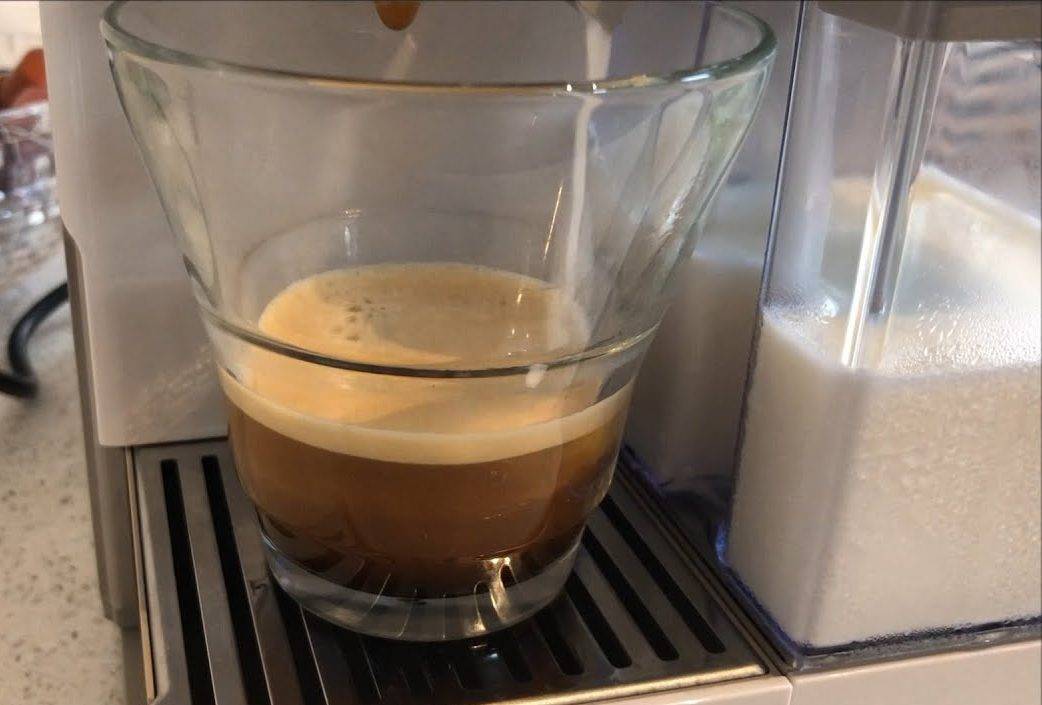How much caffeine is in a Nespresso coffee pod varies from one to the next. Generally speaking, the more caffeine is in a capsule, the higher the amount of caffeine. However, this does not mean that the coffee contains no caffeine. The different sizes of pods contain varying amounts of caffeine. Here are some tips to determine how much caffeine you need in a Nespresso capsule:

Lungo pods for Original Nespresso coffee makers contain 77 to 85 mg of caffeine per serving. These pods use more water than other espresso capsules, but still yield more coffee than espresso. There are also decaf versions of the pods, such as Volluto, Firenze, and Ristretto. Each capsule contains about 3 mg of caffeine. So, you can choose the flavor that you want, while also keeping in mind the caffeine content.
You may be wondering how much caffeine is in a Nespresso coffee pod. The truth is that the amount of caffeine varies greatly from brand to brand, but some capsules have as little as 55 mg. That’s about three times more caffeine than the average coffee pod. The next highest-caffeine OriginalLine capsule is Napoli, which has about 70 mg of caffeine per Ristretto.
The original Nespresso coffee maker’s lungo pods contain 77 to 85 mg of caffeine. Lungo contains more water than espresso, but still produces 20% more coffee than espresso. Decaf capsules for Original and Vertuo models have only three milligrams of caffeine, while Volluto and Firenze contain only one or two mg of caffeine. If you’re looking for more caffeine, consider buying a decaf pod.
In general, Nespresso does not list the caffeine content in its pods. You can find it on its Taiwan website, but this information is not available in the United States. In the US, the most caffeinated OriginalLine capsules contain 120 mg of caffeine per Ristretto, which is more than triple the amount of the average coffee pod. The next highest OriginalLine capsule is the Cape Town Envivo Lungo.
The amount of caffeine in a Nespresso pod depends on the type of coffee used. Some contain less caffeine than others, so it’s best to compare a few before you buy one. On the other hand, if you’re sensitive to caffeine, you can avoid the coffee that has high caffeine content. For those who are sensitive to caffeine, you can try a decaf capsule, or simply switch to an espresso-free variety.
Using the original Nespresso coffee pod, the lungo version contains 77 to 85 mg of caffeine per capsule. The coffee in these drinks is more powerful than espresso, so it’s worth using a decaf variant. But make sure you know the amount of caffeine in each pod before you go ahead and buy it. It will help you choose the right pod for your needs and stay healthy!
The caffeine content of a Nespresso pod can vary from 60 to 140 mg. It depends on the blend of coffee used. The blend of coffee used should be a mix of Robusta and arabica coffee. The darker the roast, the more caffeine is extracted. The more dark the roast, the more caffeine is extracted from the coffee. For most people, the caffeine content in a Nespresso pod is less than a teaspoon. But it’s important to note that each pod has a slightly different amount of caffeine.
If you’re wondering how much caffeine is in a Nespresso coffee pod, you can find it online. The company’s website is a good place to look for the caffeine content of individual coffee pods. The site features a list of the different varieties of coffee. It is also a good place to compare the different flavors of the same beverage. You can even find out which coffee pods contain the most caffeine.
When choosing a coffee pod, you should pay attention to the blend’s caffeine content. For example, a medium-roasted coffee is lower in caffeine than a dark-roasted one. The darker the roast, the more caffeine, the higher the amount of caffeine in a Nespresso pod. It is important to note that some of the coffees have more caffeine than others. You should read the labels of each pod and compare the ingredients to get the most caffeine-dense coffee.


